Everyone should be looking at ways in which we can all make small changes towards living more sustainable lifestyles. We are living in a climate crisis due to living lives which are fuelled by the need to produce things cheaply and having a throw-away culture at an environmental cost. Now is the time to make the changes as if we wait any longer there won’t be a planet for us to live on. Here are some tips I have about how you can play your part in living a more sustainable lifestyle.
Food, kitchen and garden
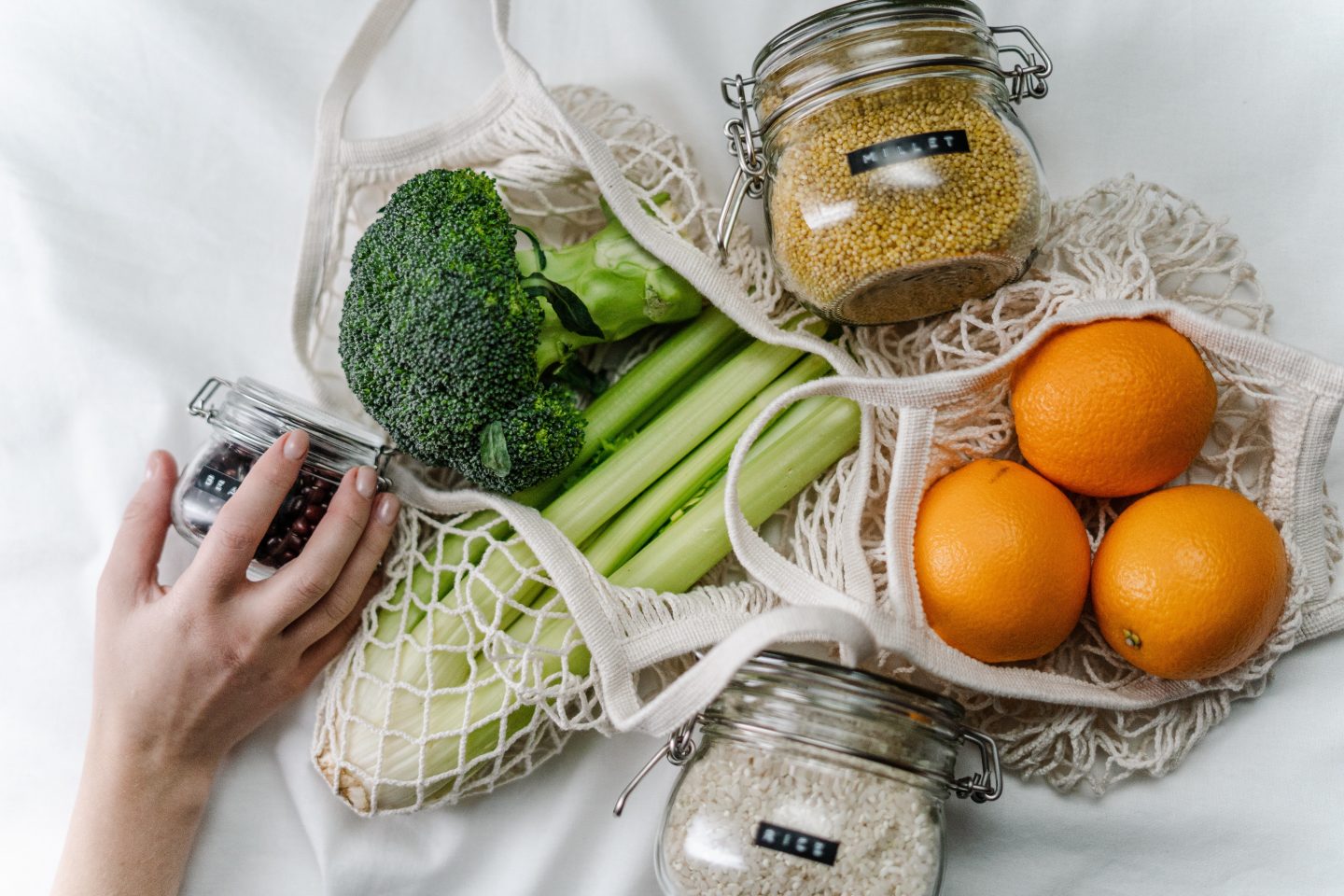
1. Shop locally
There are many reasons as to why you should shop locally. Shopping locally reduces your carbon footprint as many of the shops will source their produce locally. You may also be able to walk/ cycle there doing your bit to reduce air pollution and traffic. It is also great to know where your food is coming from and support local businesses.
If you are not sure as to where you can shop locally look out for small green grocers/ butchers/ bakeries on your local high street. There may also be local markets or farm shops to go and explore.
If you are shopping in the supermarket always try to check where the produce has come from. Although this is not as good as buying from a local shop as it is hard to know exactly where the food has come from, it is better than buying something from the opposite side of the world.
2. Eat seasonal food
When buying seasonal food from where ever you may be in the world, it helps to reduce the demand for out of season produce. This means less food is being shipped and transported from other countries reducing your carbon footprint. Out of season food has a large carbon footprint due to the refrigeration, transportation, artificial hothouses, fuels and irrigation used to get to you. You are also supporting more local farmers.
If you are wondering what is seasonal where you are just do a quick google.
3. Use you dish washing water on plants
If you have been washing up by hand, don’t just waste the water down the sink. Use the water on some plants or grass inside or outside.
4. Eat leftovers
Approximately 1.3 billion tonnes of food gets wasted in the world each year. Instead of throwing your leftovers away put them in a reusable container and in the fridge. Most things will last for a few days if not more. They are also great for when you’re in a hurry.
5. Always have a reusable water bottle with you
Carrying with you a reusable water bottle should become a habit. There should be no need for you to go to a shop to buy a disposable bottle of water. If you are worried about needing to fill up download the refill app.
6. Reusable coffee cup
The same as with water bottles if you know you are going to buy a hot drink why not get it in your reusable cup. Most places are happy to accept. You can also get some really cute designs.
7. Don’t use straws or carry with you a reusable one
Most people have seen the sad image of a turtle with a straw stuck in its nose. This is due to plastic straws not being recycled and ending up in the ocean. Just ask for your drink without a straw and if you need one for any reason invest in a reusable one you can carry in your bag and wash when you get home.
8. Grow your own veg
This of course depends on whether you have a garden/ allotment but if you do give growing your own veg a go. You don’t only know exactly where your food is coming from but it is also very rewarding. My favourite things to grow have been tomatoes and runner beans.
9. Grow your own herb garden
To have your own herb garden you do not need a garden. It is very easy to do so on a windowsill. You can find herb plants at your local garden centre or supermarket often for not very much. Make sure that you look after them though!
10. Compost food scraps
Most local councils provide you with compost bins. However, if you don’t live in the UK or don’t have a compost collection service it is easy enough to create your own compost heap at the bottom of a garden. This compost will then be great to add nutrients to your plants the following years.
11. Store food correctly
The amount of food which ends up going to waste because of it being stored incorrectly is shocking. An astonishing two-thirds of food waste at home is due to it not being eaten before it goes off. There is no reason this should be happening! If you are unsure as to how something should be stored look it up and learn as you go along.
12. Leave the oven open after finishing cooking
All of the heat that has built up in your oven can be released after you have finished cooking into the room to provide a bit of heat.
13. Repurpose old jars
Jars can be great for all sorts of things. Organise bits and bobs or store food. You never know when a jar might come in handy so start a small collection.
14. Reusable sandwich wraps
I use these all the time instead of cling film. Just make your sandwich and put them in a reusable wax wrap to keep it fresh. Once done just wash/ wipe down and they are ready for their next use. They don’t have to just be used for sandwiches but anything else you would usually wrap in clingfilm. These are the sandwich wraps I have and they have so many patterns to choose from.
15. Silicone cupcake cases🧁
Silicone cupcake cases are a game changer and a must for any keen baker. There’s no need to keep buying paper cupcake cases and you’ll never run out! Reuse them again and again plus you can take the cupcakes out of their cases easily to make a nice cupcake display.
16. Silicone food covers
My mum got a set of these to try a few years ago and they are so useful! Instead of using cling film you can get these in different sizes to stretch to cover food. They are a bit like lids but stretchy ones.
17. Reuse tin foil
Refusing tin foil all depends on what you’ve used it for. If you’ve wrapped it around food to cook it may not be reusable. However, if you’ve used it to cover over the top of a dish the likelihood is that it will be pretty clean so just give it a wipe and save it for next time.
18. Collect old metal/ bamboo trays from food or plastic containers from takeaways
These containers are solid. They are therefore really useful to keep for other things you are cooking or diy ideas.
19. Make chutneys
Making chutneys is a great way to preserve food. Depending on what you have left over there are many recipes online to preserve food which will otherwise go off and be thrown away. One of my favourites is green tomato chutney.
20. Reusable coffee filters
I’m personally not a coffee drinker so have absolutely no idea about coffee but I’ve been reliably informed that there are such things as reusable coffee filters. You may be worried that they’ll effect the taste of your coffee but apparently not.
21. Return and recycle coffee pods
Lots of different coffee companies which sell coffee pods are now offering a recycling service. Make sure to check with where you get your coffee pods from as to whether they do this. Just collect them up and take them in on your next visit.
22. Plant native plants
Native plants support more wildlife than non native plants. They are better adapted to the local climate, soil type and wildlife. Without them wildlife will not thrive and our ecological system will struggle.
23. Install a solitary beehive
Bees need our help so why not help them out. You can buy or make a solitary beehive to put in your garden which provides a valuable habitat for the solitary bees.
24. Join a community garden
Grown you own food and help your community at the same time whilst making new friends.
25. Use a reusable cloth instead of kitchen towels
Kitchen towels are so wasteful as they are single use. Instead use a reusable cloth which can be washed.
26. Use a dishwasher instead of hand washing
This is something that I didn’t realise but dishwashers are now so advanced they are more efficient at using water than hand washing. So if you have a dishwasher you’d be better off using it. However, you do not need to rinse your dishes before putting them in and only use the dishwasher when it is full.
27. Buy less takeaways and cook more at home
Think about the packaging you get every time you order a takeaway. You can make a homemade version of lots of takeaways such as curries and just freeze them so they are easy to heat up and eat when you want that quick and easy food fix.
28. Buy only the food you know you’ll eat
This is when making a list and sticking with it is important. When you are at the supermarket they put things in places so you’ll buy them and it is so easy to end up buying more than you actually need. So make sure you make a list beforehand and stick to it.
29. Don’t accept disposable cutlery and napkins
Does anyone else just find it annoying when you’re just handed a bunch of disposable cutlery or napkins that you are never going to use and you didn’t ask for? Well just don’t accept it but kindly declining. And even better just carry around some actual reusable cutlery in your bag.
30. Buy large 2 litre bottles of pop instead of individual cans
Yes a large bottle is plastic compared to cans but if you look at them, the bottle which is widely recycled has less packaging than all of the cans put together.
Electronics

31. Use LED lights
LED is highly energy efficient. It provides less heat, more light and at a lower cost. They need around 85% less electricity to be powered than a traditional lightbulb.
32. Try and use rechargeable batteries
They are better as they can be recharged hundreds of times so produce less waste.
33. Switch to renewable energy with your energy provider
Either switch energy provider or see if your current provider has an option where you can receive more energy from a sustainable source. Here’s a little more info on what you need to know about it.
34. Spend more time reading instead of being on devices
This may seem a little obvious but the less time you spend on electrical devices the less electricity you will be using. It is also better for your eyes to read a book instead of staring at a screen especially before going to sleep.
35. Unplug devices when not in use
It’s surprising how much electricity is going to waste when a device is plugged in but not being used. Just unplug it and save the energy.
36. Search the Internet using Ecosia
By searching the internet using Ecosia you help trees to be planted.
37. Use sustainability apps
There are so many apps out there but did you know some are there to help us live more sustainable lifestyles? Luckily for you I have compiled a list of 10 sustainability apps which i’d recommend to get you started.
38. Opt for electronic notices
You don’t need the piles of paper so just get them sent to you electronically.
39. Use solar powered chargers
Solar power is a great source of renewable electricity. There are a lot of great solar powered charges on the market which you can take with you wherever you go.
40. Use electronics right up until they die
Electronic waste also known as e-waste contains a long list of chemicals which are harmful to people and the environment. They also contain many finite resources. It is important that we use electronics right up until the end so unnecessary e-waste is not created. If you have used your electronic item right up until the end make sure that you take it somewhere where it can be suitably recycled.
Save paper
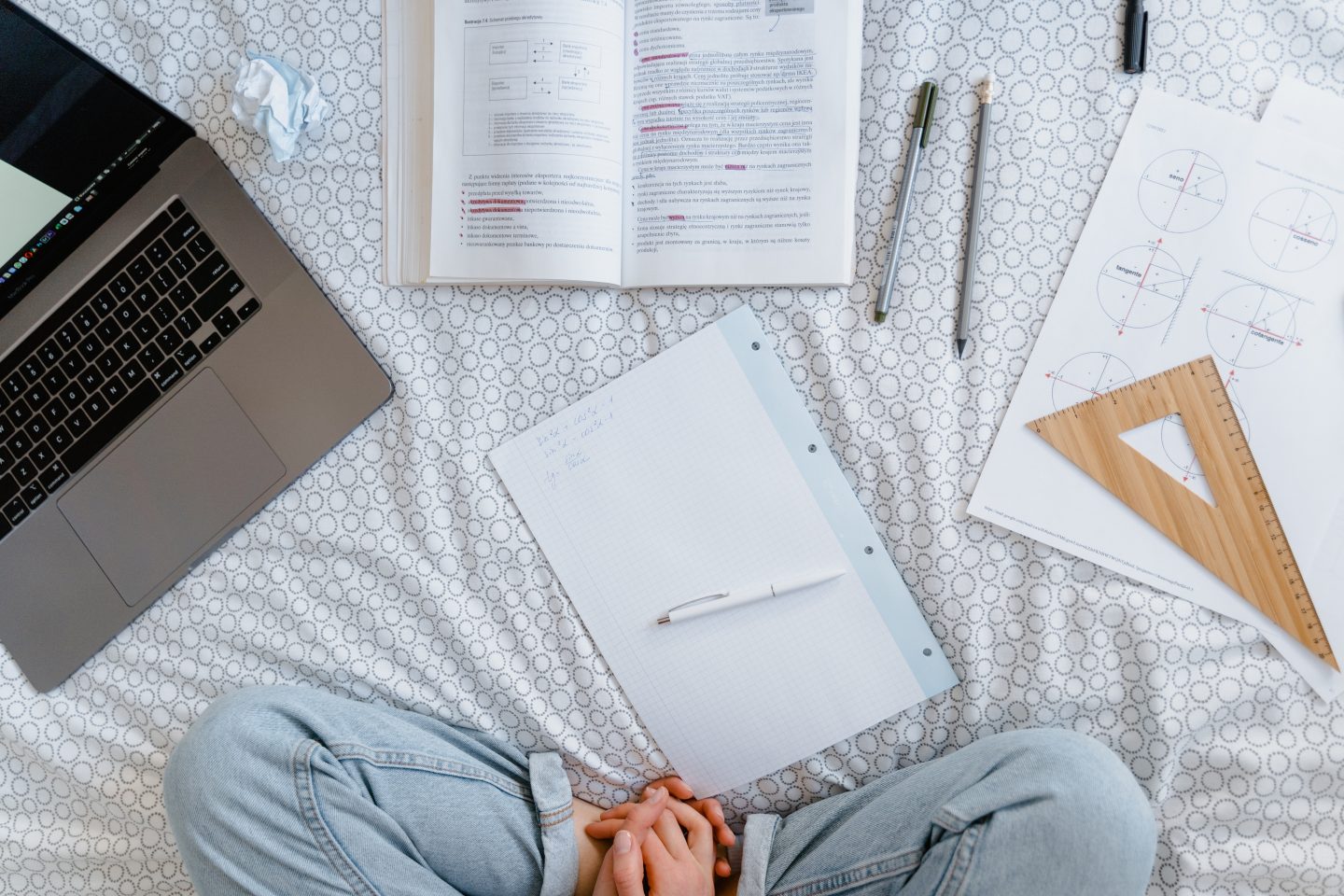
41. Use old wrapping paper, brown paper or newspaper to wrap presents.
Wrapping paper does not need to be a single use item. Be careful and use scissors when opening presents, then collect it in a box to reuse on another occasion. No one will care that it’s second hand and will probably not even notice. Along with that try and use brown paper which is more easily recycled or newspaper.
42. Use your local library instead of buying new books
You don’t need to buy new books every time which you’ll read once and then will have sitting on the shelf for years. Make use of your local library and have access to a wide variety of books. It is also much cheaper than buying your own copies.
43. Email receipts
Do you really need a pile of paper receipts that you keep in an empty shoe box in a cupboard you never open for years and years? No you really don’t so why not get your receipts emailed to you instead. They are also much easier to file and find in your emails if you ever need them in the future.
44. Put up a no junk mail sign on post box
Either your tripping over leaflets on your way in every day or your post box is getting full of them. Do you ever read them? I’m going to guess rarely, so why ever receive them in the first place if they are going straight in the bin. Put up a sign on your post box to let your post man know you don’t want to be receiving any junk mail and save the paper.
45. Instead of photocopying scan things
Who needs more piles of paper everywhere which you’ll probably never look at. Just scan them in and save them that way. A great app I use is FineReader and it’s free!
46. Save gift bags and boxes
You can get some really pretty and solid ones so why just throw them out. They can be great for other gifts in the future.
47. Type instead of using paper
Why waste a tree when you can just type it. You are also much less likely to lose it.
48. Use both sides of paper
When using a piece of paper to write on use all of it including both sides.
49. Print double sided
There are two sides of a piece of paper so why not use both and save paper. If you have a piece of paper which has only be printed on one side why not add it to a scrap paper pile for when you need to scribble some notes down.
Shopping
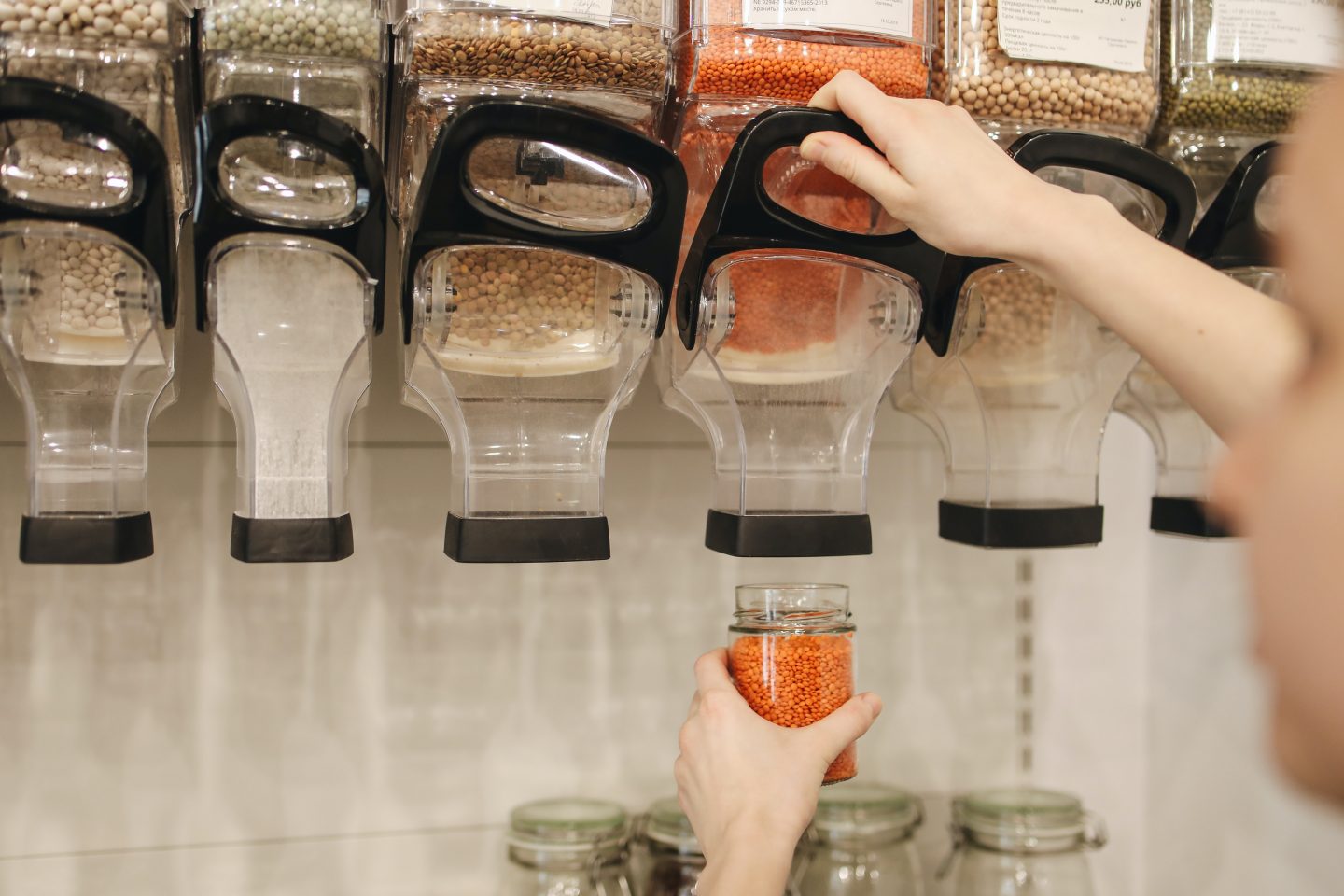
50. Buy second hand clothes
You can buy great quality second hand clothing in stores and charity shops but also online on sites such as Depop and Vinted.
51. Bring reusable shopping bags
If you live in the UK you now have to pay a small fee for a plastic shopping bag. Always remember to take a shopping bag with you to not only save the pennies but to also save the planet from plastic bag waste. You can even get ones in the from of key-rings so you always have one to hand.
52. Invest in some good quality wardrobe pieces instead of buying fast fashion.
Fast fashion is inexpensive, mass produced clothing that emulates designs from the catwalk, high fashion and popular culture. In my opinion influencers have a lot to answer for when promoting fast fashion items. They don’t only exploit labour but harm the environment with production and overconsumption of products. It is estimated that over half of these items are disposed of within a year due to poor quality and to keep up with micro fashion trends.
Fast fashion is attractive to consumers because it is cheap. They do not think about the environmental implications it is having. It will also be of poor quality and not be made for longevity.
Although it may seem to be expensive to buy good quality wardrobe pieces, they are an investment that will pay off. In the long run you will be spending less as they will be good enough quality to last for years. If you’d like to find some sustainable brands for some good quality pieces check out the Good On You app.
53. Donate old clothes
There is no need to throw away old clothes which although you don’t want, someone else could get good use out of. Donate them to charity shops/ bins or try selling them on sites such as Depop and Vinted.
54. Buy recycled toilet paper
Everyone needs toilet paper so why not make sure it is recycled. One company you should try is ‘who gives a crap’.
55. Buy in bulk where possible
Buying in bulk reduces both your packaging waste and food waste. It also eliminates the need for fancy packaging and single-use plastic.
56. Don’t throw out old tights
There is no need to throw out tights which just have a small hole in. They can be useful for other projects such as tying up plants in the garden.
57. Avoid buying plastic toys
As everyone knows plastic is one of the biggest problems in today’s society. When buying toys try and avoid plastic. There are great wooden and eco friendlier options.
58. Shop at a sustainable store
Now of course depends on where you live but there are lots of sustainable stores popping up all the time. Some supermarkets are also trying to be more sustainable so if you can, try and choose to shop at one of these.
59. Buy only what you need
If you buy more than what you need it will just go to waste so why buy it in the first place.
60. Avoid buying plastic wrapped products
Sometimes it’s pretty unavoidable but more and more supermarkets are offering things such as fruit and veg in or out of plastic wrappers. So choose what has less packaging if possible.
61. Take your own containers when buying food (bakers, butchers)
Due to hygiene concerns of the shop owners, they are not always happy to do this but it is worth asking. By taking your own reusable containers you are not only preventing waste but also saving the shop owner money.
62. Support ethical and sustainable fashion brands
Fast fashion is destroying our planet so support them where you can. Make sure you do your research as many retailers say they are sustainable but clearly don’t know what sustainability really means.
63. Use multipurpose products
By buying multipurpose products you reduce the amount of packaging you are buying and therefore throwing away.
Beauty, skin care and bathroom
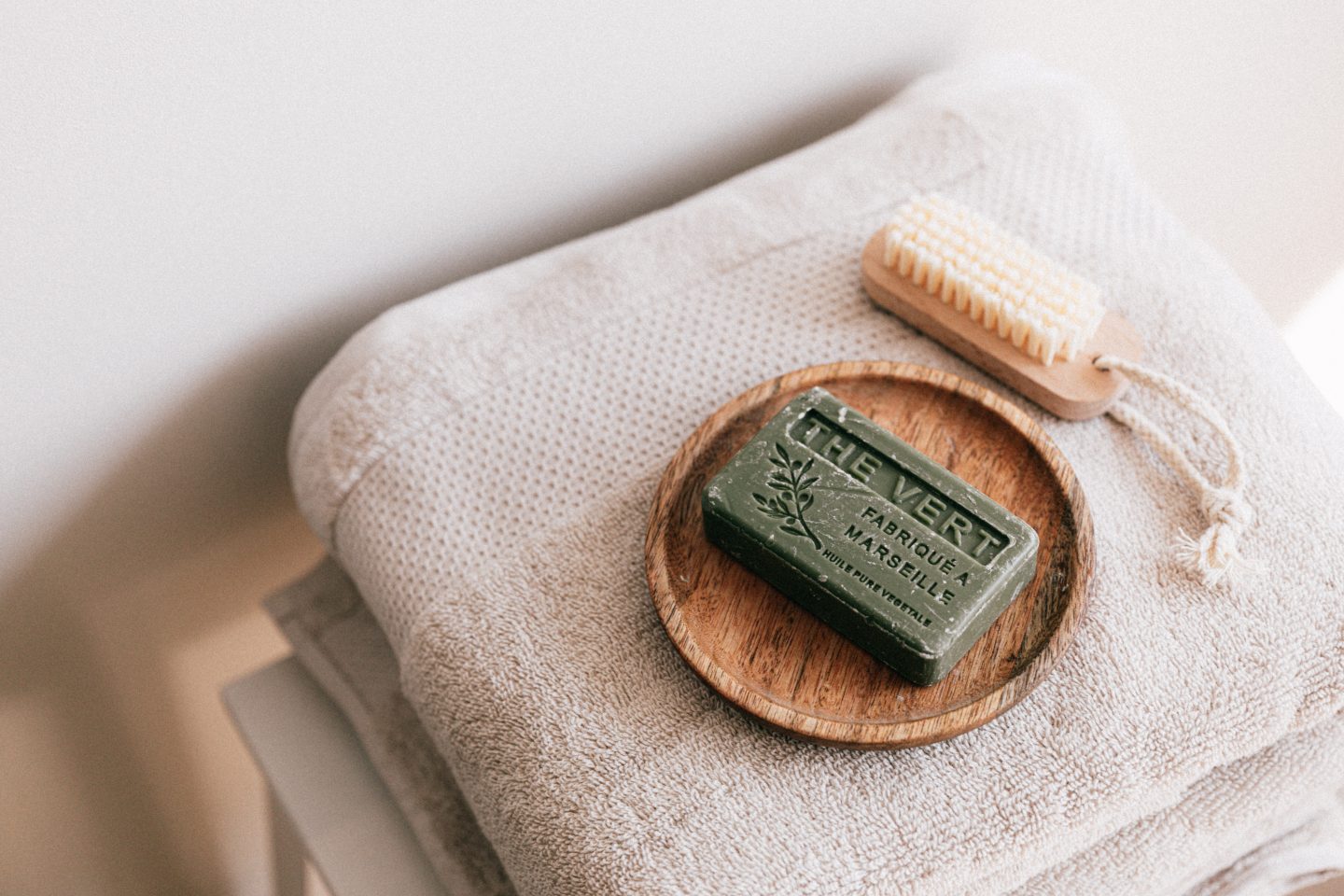
64. Use a bar of soap instead of liquid soap
I find a bar of soap is much better for my skin but it is also great as it uses hardly any packaging. They usually come in a paper wrapper which can be easily recycled and is much better than a plastic bottle.
65. Use a bamboo toothbrush instead of a plastic one
Plastic waste is a huge issue in todays society. Toothbrushes are a particular issue as they are hard to recycle. Bamboo however is a much more sustainable option and is a biodegradable option. If you can’t find them is a local shop you can buy them online in bulk.
66. Limit your showers to 3 mins
Ever been to camp when you were younger? They usually limit your showers to 3 mins so everyone can have a turn. 3 mins is plenty of time and can save you loads of water.
67. Reusable cotton pads
Reusable cotton pads can be washed to be reused saving you money and the environment.
68. Reusable cotton buds
Just like with the reusable cotton pads why not use a reusable cotton bud so that you produce less waste.
69. Menstrual cups
Yes they can be a bit scary at first and you’ve probably heard some horror stories but don’t let this put you off. Once you get used to it they not only mean you waste so much less but they are so convenient and easier to use than the more conventional products.
70. Reusable razors
I have seen it become a trend to use disposable razors so the blade is always sharp. This adds up quickly and is not only costly for you but also the environment. Reusable razors do not get blunt as quickly as some people think and they work perfectly fine again and again.
71. Cloth nappies
This is only for those parents reading this. It definitely is not for everyone but apparently it’s easier to do than you may think. Just think about the amount of nappies a baby goes through and how much waste you will be preventing.
72. Reusable deodorant
Plastic deodorant packaging and aerosol cans are harmful to the environment as they are difficult to recycle and the cans release harmful gasses too. There are many reusable and refillable deodorants coming on the market which are also better for your skin.
73. Don’t wear make up every day
Not only will your skin thank you for this but so will your bank balance. Save time and money whilst having to buy less makeup.
74. Don’t leave water running when doing your teeth or washing your face
Leaving water running is just wasting the water. It is easy to turn the tap on and off and you save so much water from doing so. It is so simple yet effective!
75. Reuse towels more than once
Personally I was shocked about how many people wash their towels after every use. There is no need! If you think about it you use your towel to dry yourself after you’ve just cleaned so they shouldn’t be dirty after every use.
76. Buy larger bottles of beauty products
Larger bottle means less packaging. If it is something that you would buy regularly why not choose the larger bottle and sometimes even save some pennies.
Energy saving
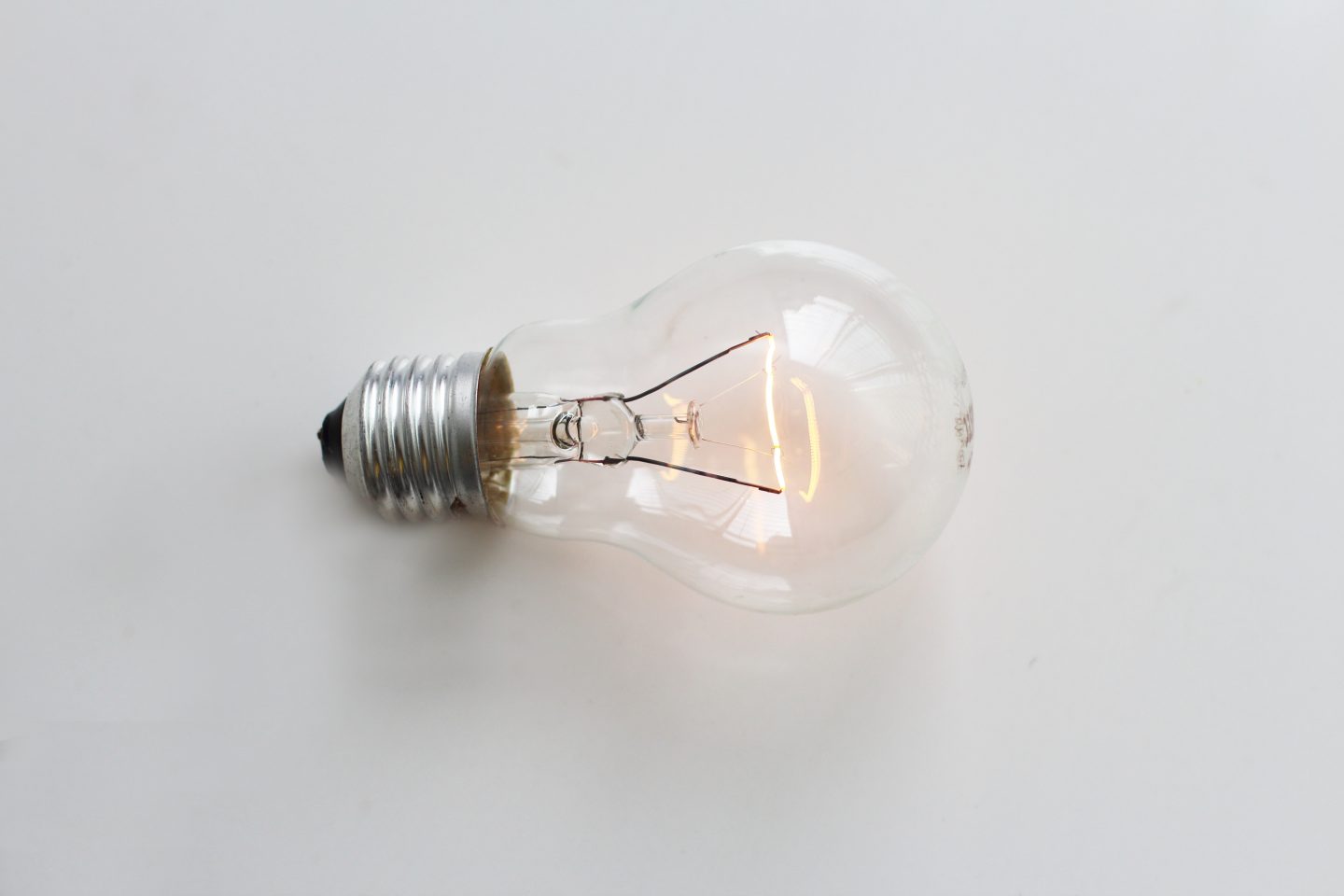
77. Use a tap aerator
A tap aerator also known as a flow regulator, works by mixing air into the water flow which reduces the amount of water passing through the tap and therefore reduces the amount of water you use. These are usually very simple to install and just fit on the end of the tap head.
78. Put on layers instead of turning your heating up
When you are getting a bit chilly when the seasons start to get colder don’t automatically turn the heating up. You can simply put more layers on to stay warmer and save on heating energy.
79. Only use the washing machine when you can fill it
It is a waste of energy and water if you use your washing machine for only a couple of things. Use a washing basket to collect clothes and try to only use your washing machine when you are able to fill it.
80. Turn off your lights at home
When you don’t need a light on just turn it off like when leaving a room.
81. Hang your clothes up to dry
There is no need to use a tumble dryer. Hanging your clothes up does take longer but makes your clothes nice and fresh. It also helps your clothes to last longer.
82. Open your curtains for natural light
You don’t always need to be putting a light on. Just opening the curtains and letting natural light in will do the job and save electricity.
83. Reduce how often you wash your clothes
We wear underwear for a reason. Until your clothes are dirty they do not need washing after every use.
84. Regulate heat by opening and closing doors
In most places in the world you don’t need a heater/ air-con to regulate heat in the house. Just open and close doors as necessary to let warm air in/out.
85. Hand wash clothes if there is not much to wash
Putting on a wash just for a few clothes in unnecessary. It is easy and better for the environment to just wash them by hand.
Transport
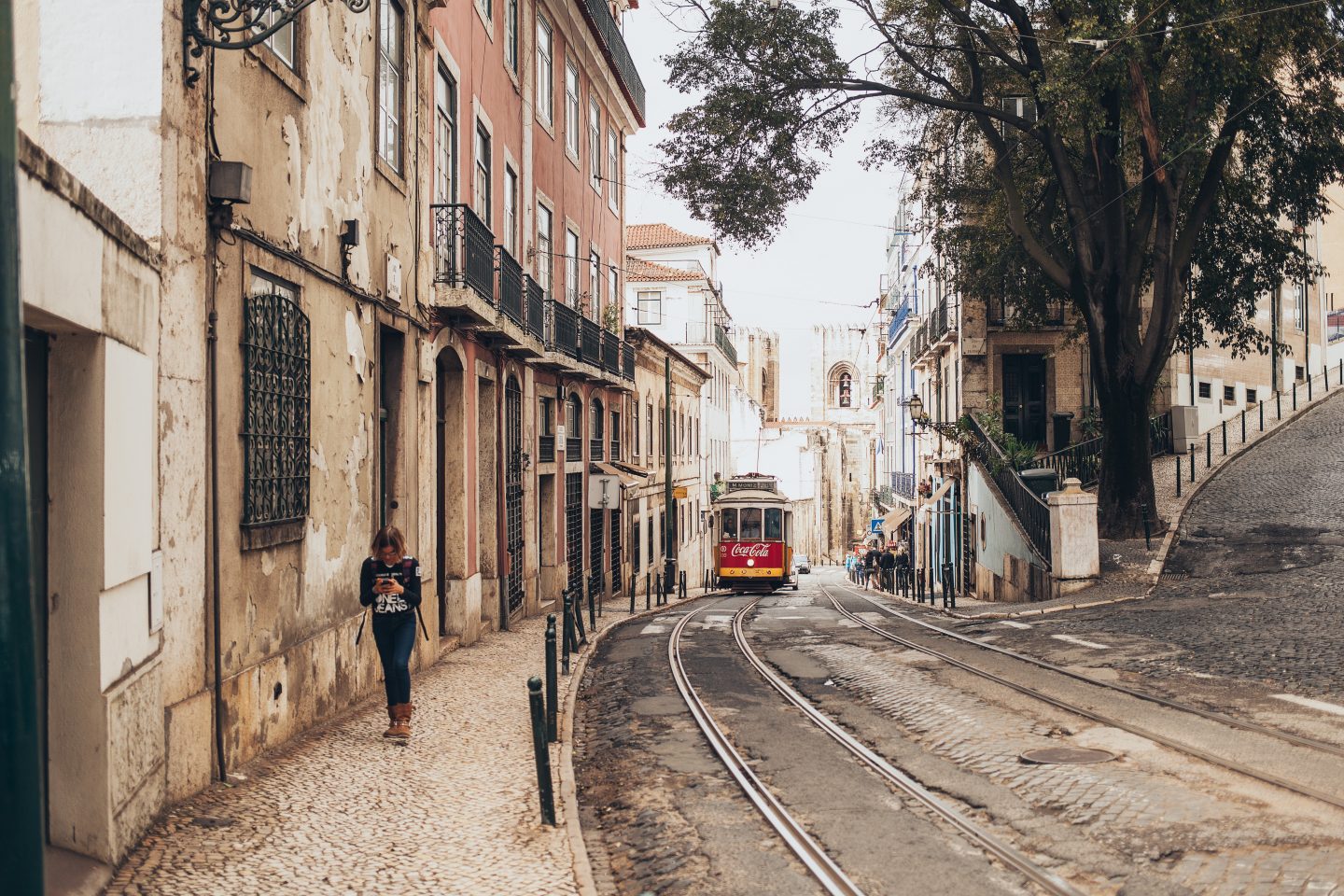
86. Walk where you can
When it comes to transport the most sustainable way of getting from A to B is by walking. It’s not only great for the planet it is also fantastic for your health.
87. Car share
Instead of two cars going to the exact same place just all hop into one.
88. Turn off your engine waiting at lights
Don’t be one of those people burning fuel whilst not going anywhere. It’s a simple change to reduce your emissions.
89. Travel more efficiently
When travelling try and plan your route effectively so you are using less transport. When using transport try and avoid flying and use public services such as trains.
90. Refuel your car with renewables
Most people don’t realise that lots of petrol stations are offering fuel which is partially renewable. This means that you don’t need a hybrid/ electric car to be part of the renewable transport game so just keep a look out.
91. Use public transport
Everyone knows that using public transport is better environmentally. Instead of adding another car on the road try and opt for public transport.
Other
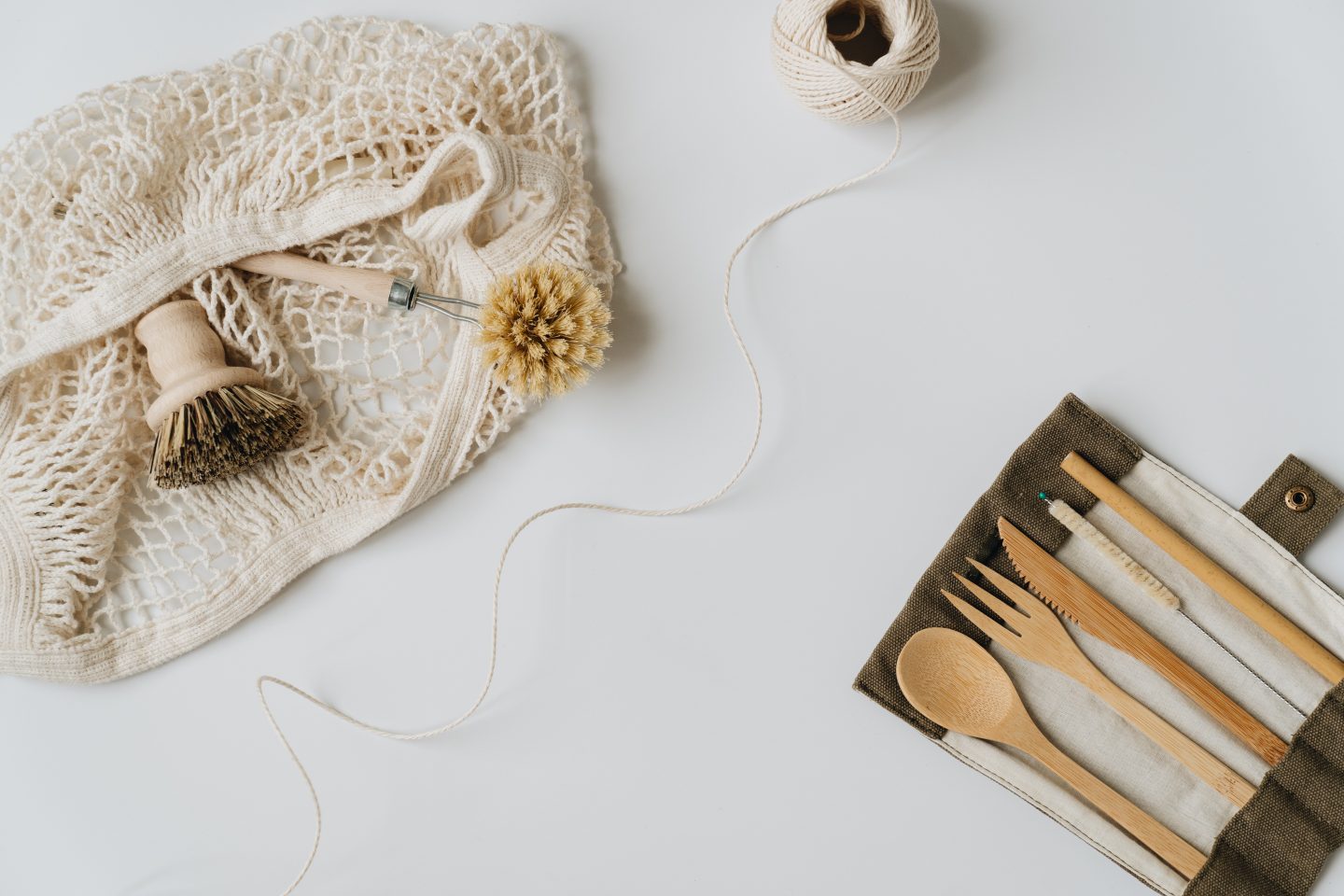
92. Fix broken items instead of throwing away
We now live in a society with a throw away culture which is a big issue. Everyone used to fix things instead of just throwing them away, mostly to save money and because it was the thing to do. To save our environment we need to go back to “make do and mend” which is a much more sustainable lifestyle. It’s also fun to fix things and see how things work.
93. Stop using single use items
There are so many reusable alternatives out there now so choose them over the single use items.
94. Share and borrow with family and friends
What’s the point in buying something that you use a couple of times a year and you know someone else already as it. After all sharing is caring.
95. Learn to sew (holes)
If you get a hole in something there is no need to just throw it out. Learn to sew and you’ll get much more use out of it.
96. Collect old rubber bands, strings and wire ties
These things always come in useful. Get a tub from something and collect them.
97. Don’t use a bin liner or use newspaper instead
Think about the plastic bags which go to waste because of using a bin liner. Just empty your bins into the main bin without using a plastic bag. You may want to line the bottom of the bin with newspaper but this is not necessary.
98. Make homemade cleaners or use eco friendly ones instead of harsh chemicals
My favourite eco friendlier brand I use for cleaning is Ecover. It can easily be found in most UK supermarkets and is also great if you have sensitive skin. There is also some much information online as to how you can make cleaners from home with simple household items.
99. Gift experiences instead of objects
Life is for making memories so why not gift experiences you can share with your family and friends. They are much more fun and personal than an object.
100. Use your voice and your vote
It is not just about making sustainable changes but also changing the laws and encouraging others. You may choose to just sign a few petitions, go out and protest, share a few things on social media or vote but they all make a difference. We need to make sure everyone has to change their habits for the goodness of the planet.
I hope that these 100 tips have given you some good ideas as to which small changes we can all make to live more sustainable lifestyles. There are so many things we can do but anymore hints and tips please let me know!
Rebecca xx
